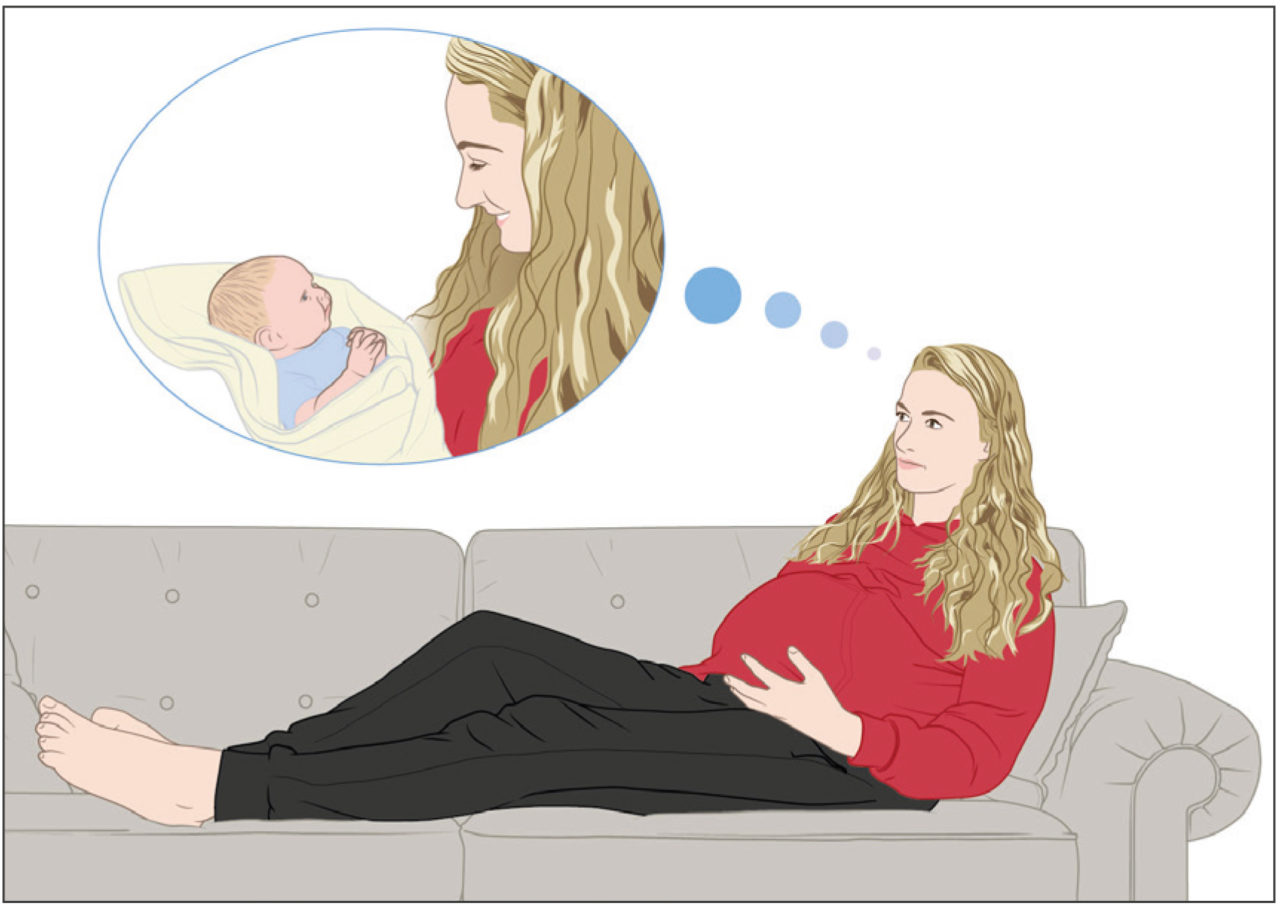
Pregnant women can also get the coronavirus.
If you have symptoms, please call the midwife or the hospital. Symptoms are:
- coughing
- sneezing
- snot nose
- sore throat
- fever of 38.0 degrees or higher
- loss of taste and/or smell
If you have symptoms, please call the midwife practice or hospital and ask what you should do.
What is different because of the coronavirus?
1. The delivery
- You and the midwife will discuss whether you want to give birth at home or in the hospital.
- One person is allowed at the delivery, for example, your husband, sister or a friend. In some cases, two people are allowed. Ask your midwife or doctor about this.
- Make sure you organise a babysitter for your other children.
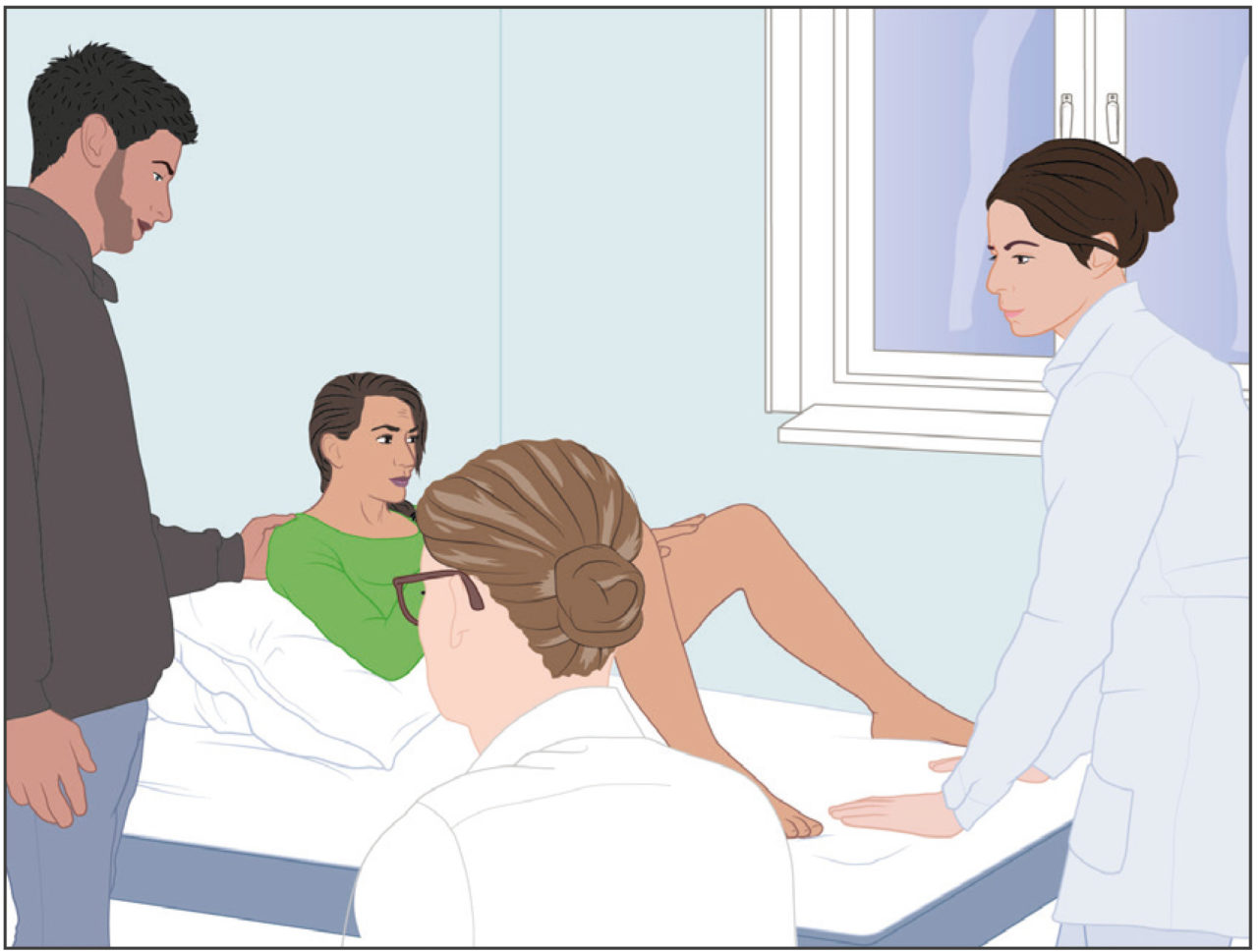
2. The baby
The coronavirus can make your baby ill.
This is how you can reduce the chances of your baby getting corona:
- Wash your hands with soap before touching the baby.
- Wash your hands with soap before breastfeeding.
- Wash your hands with soap before expressing milk.
- Wash your hands with soap before bottle-feeding.
If you have corona:
- Wear a mask when feeding, caring for and cuddling.
- Use a new mask every time.
- Use tissues.
- Sneeze and cough into your elbow.
- Don’t shake hands, hug or kiss anyone.
- Keep a distance of 1.5 metres from the baby when the baby is resting/sleeping.
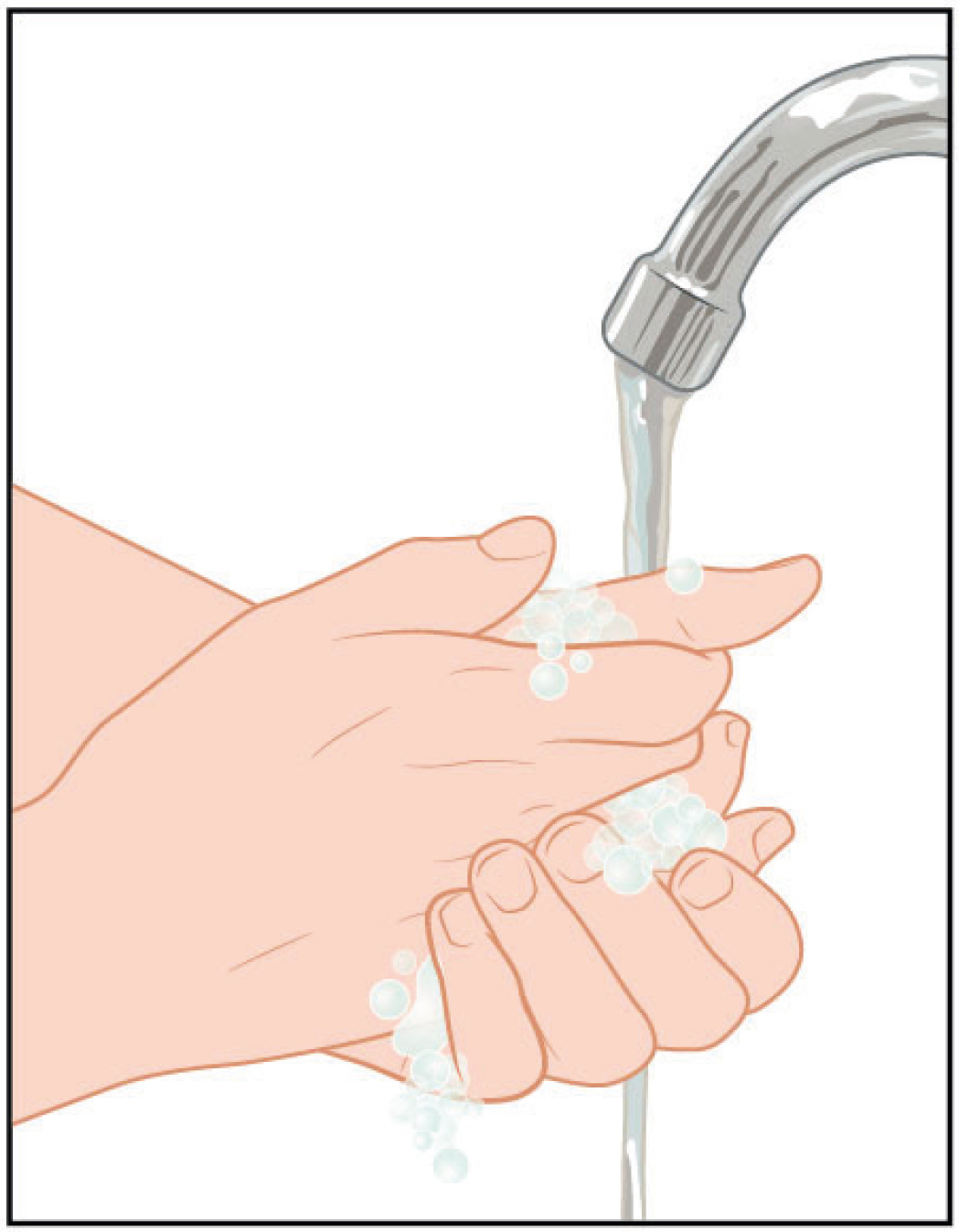
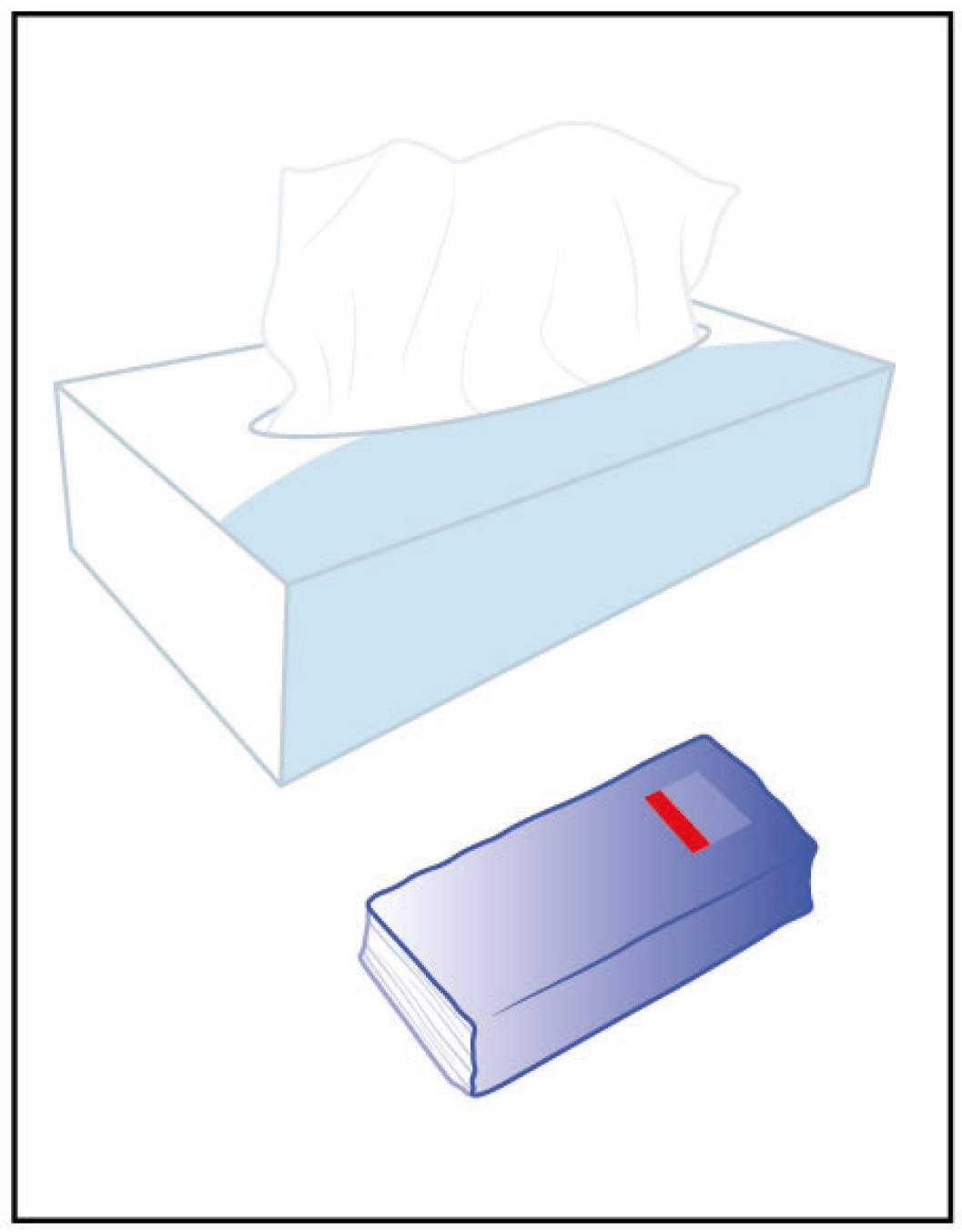
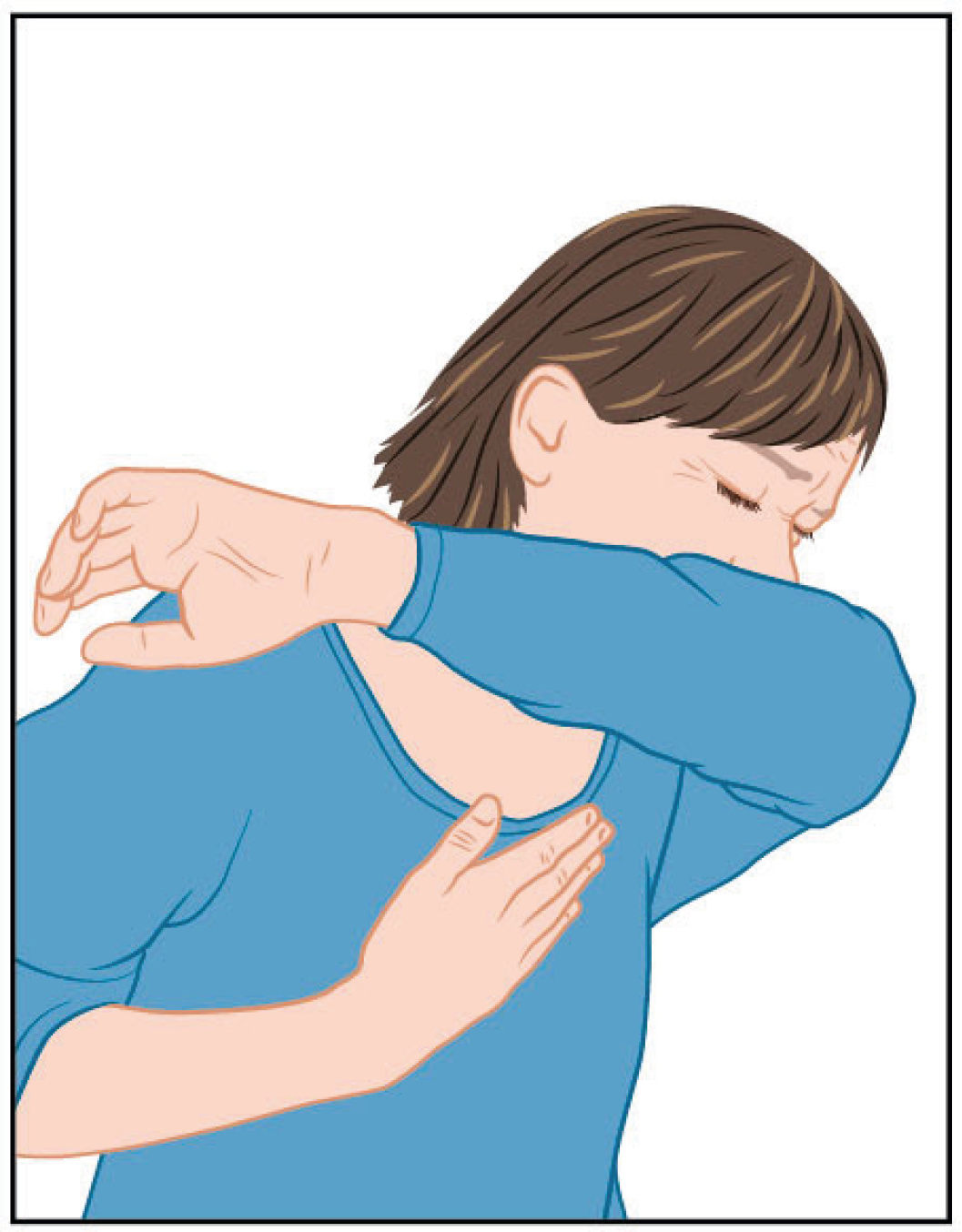
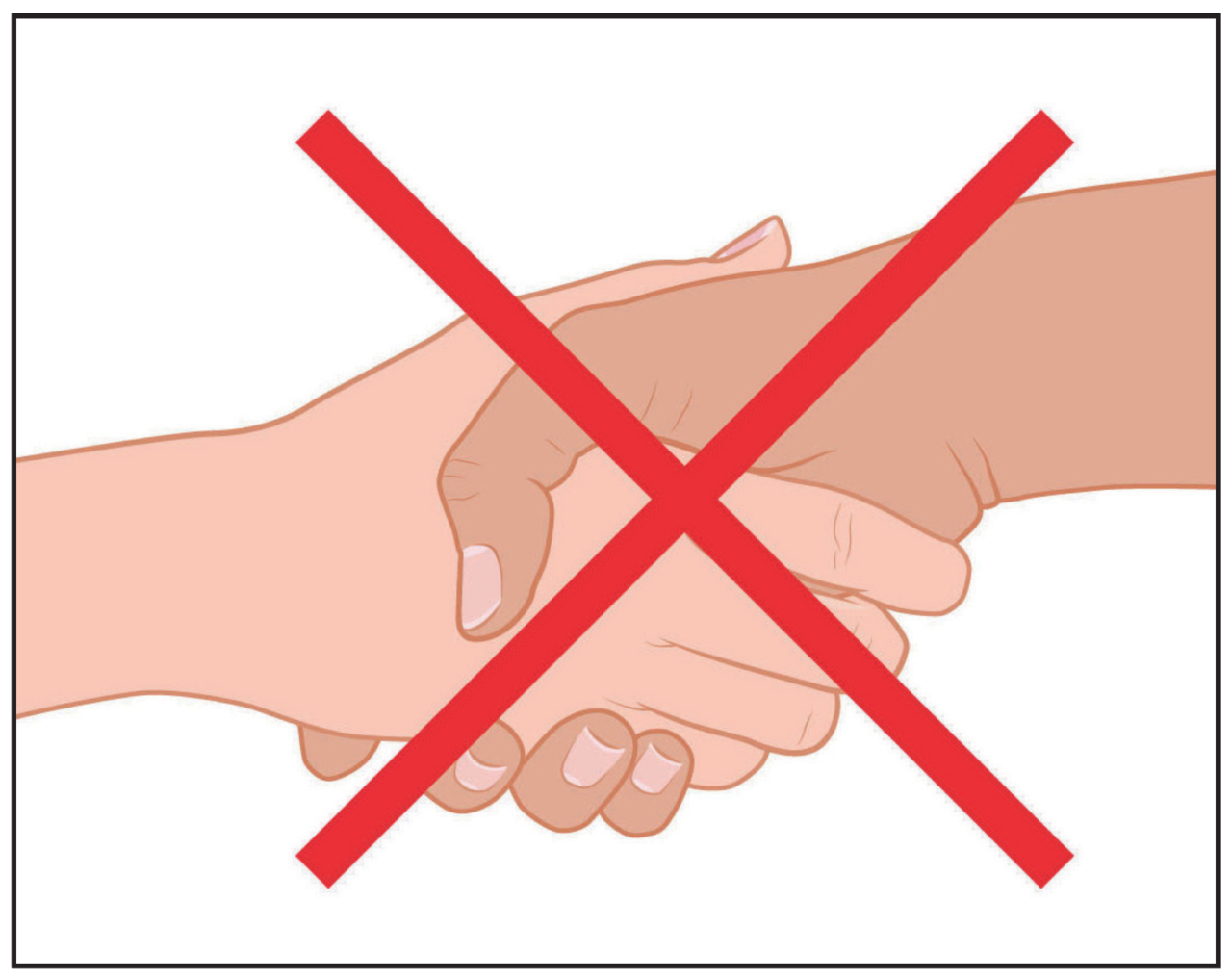
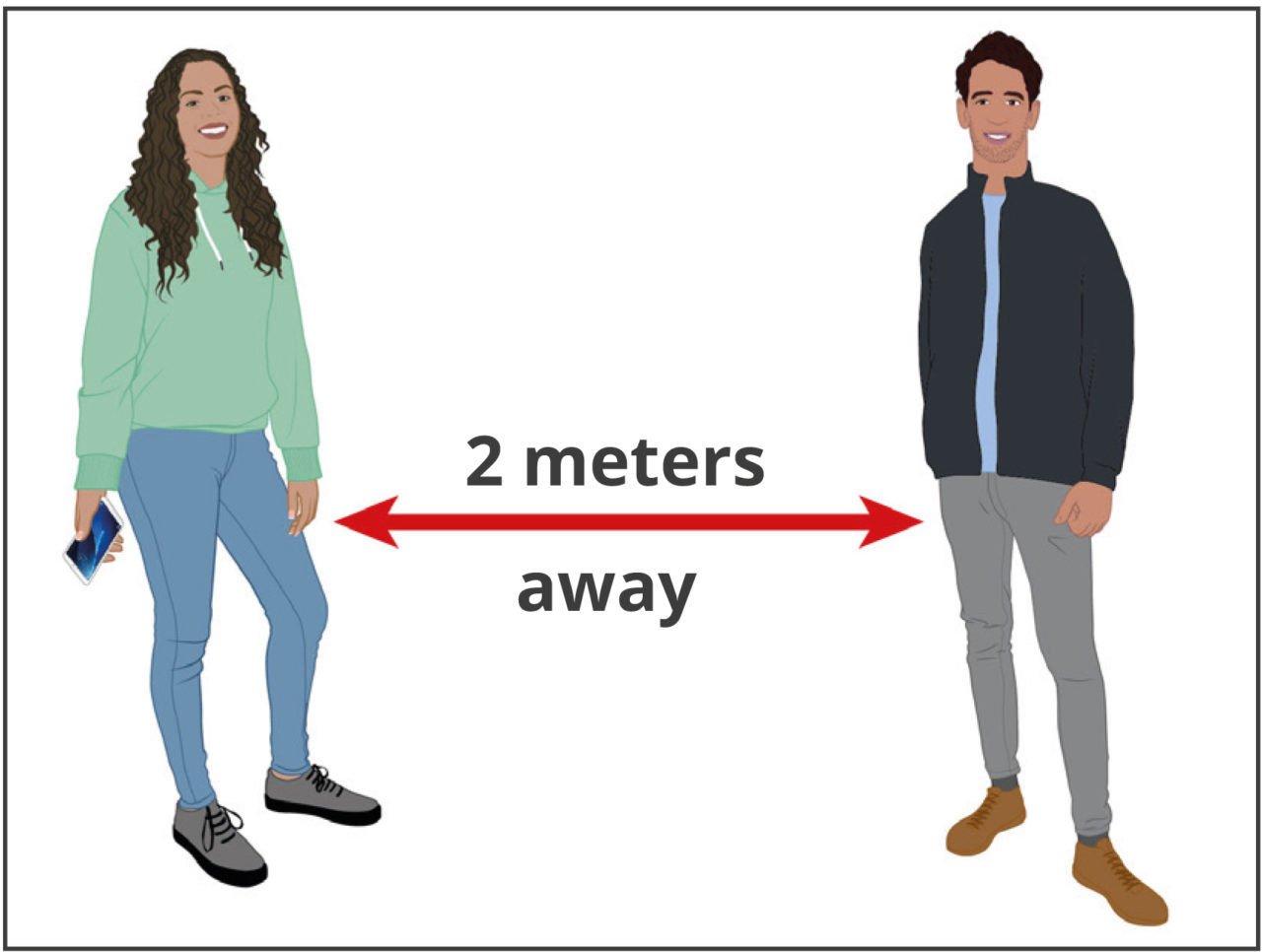
3. Questions
Please call the midwife practice if you have any questions.
If you have a gynaecologist, a specialist doctor for women who cares for you and your baby, please call the hospital if you have any questions.
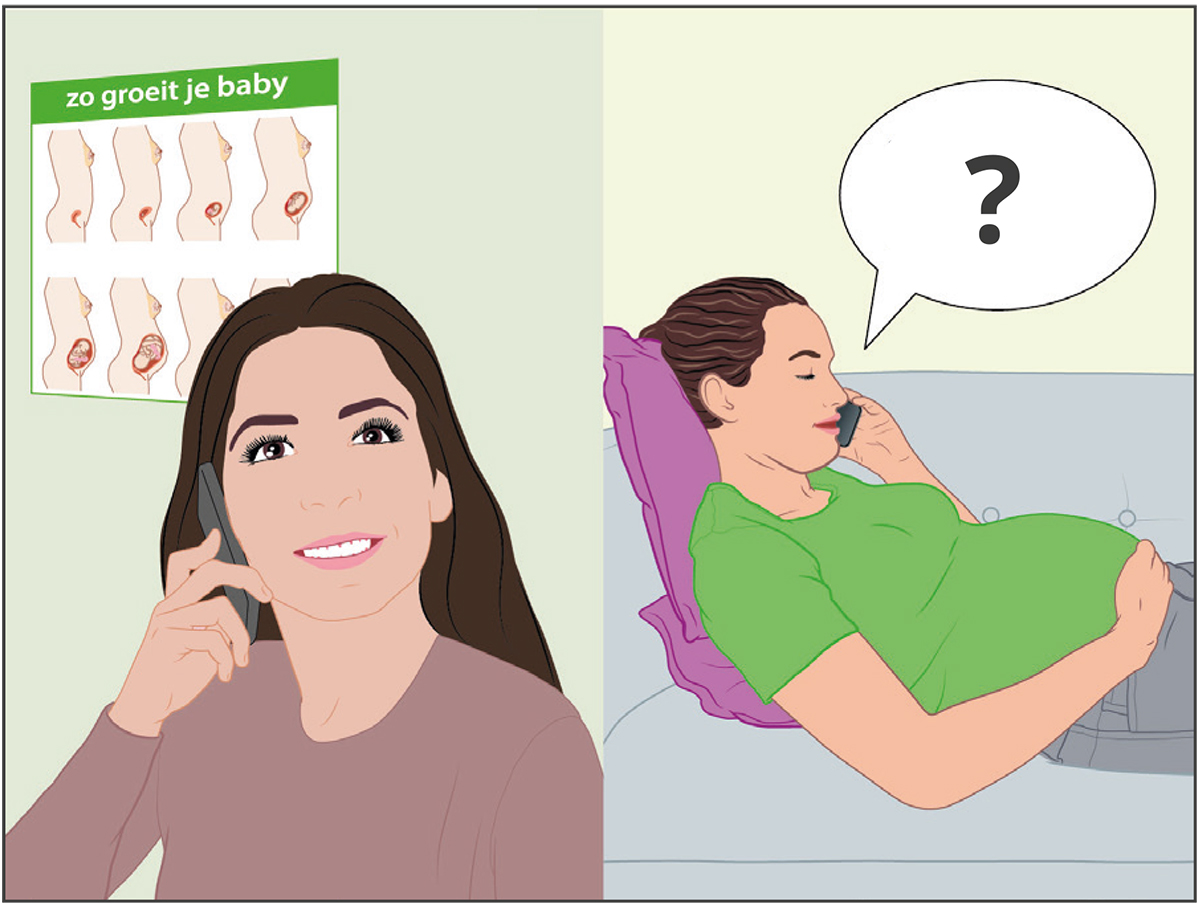
4. Check-ups
- Plan your next appointment together with your midwife or doctor.
- You can always call for an extra check-up if you are worried.
- If you have a cold or other symptoms, do not go to the practice or the hospital. Call to let us know that you have symptoms. Sometimes the check-up can be done by telephone, or a new check-up has to be scheduled.
- If your check-up is a medical necessity, the midwife or doctor will wear special clothing.
- Unfortunately, your partner cannot always accompany you to the consultation hour. Please discuss this with the midwife or hospital.
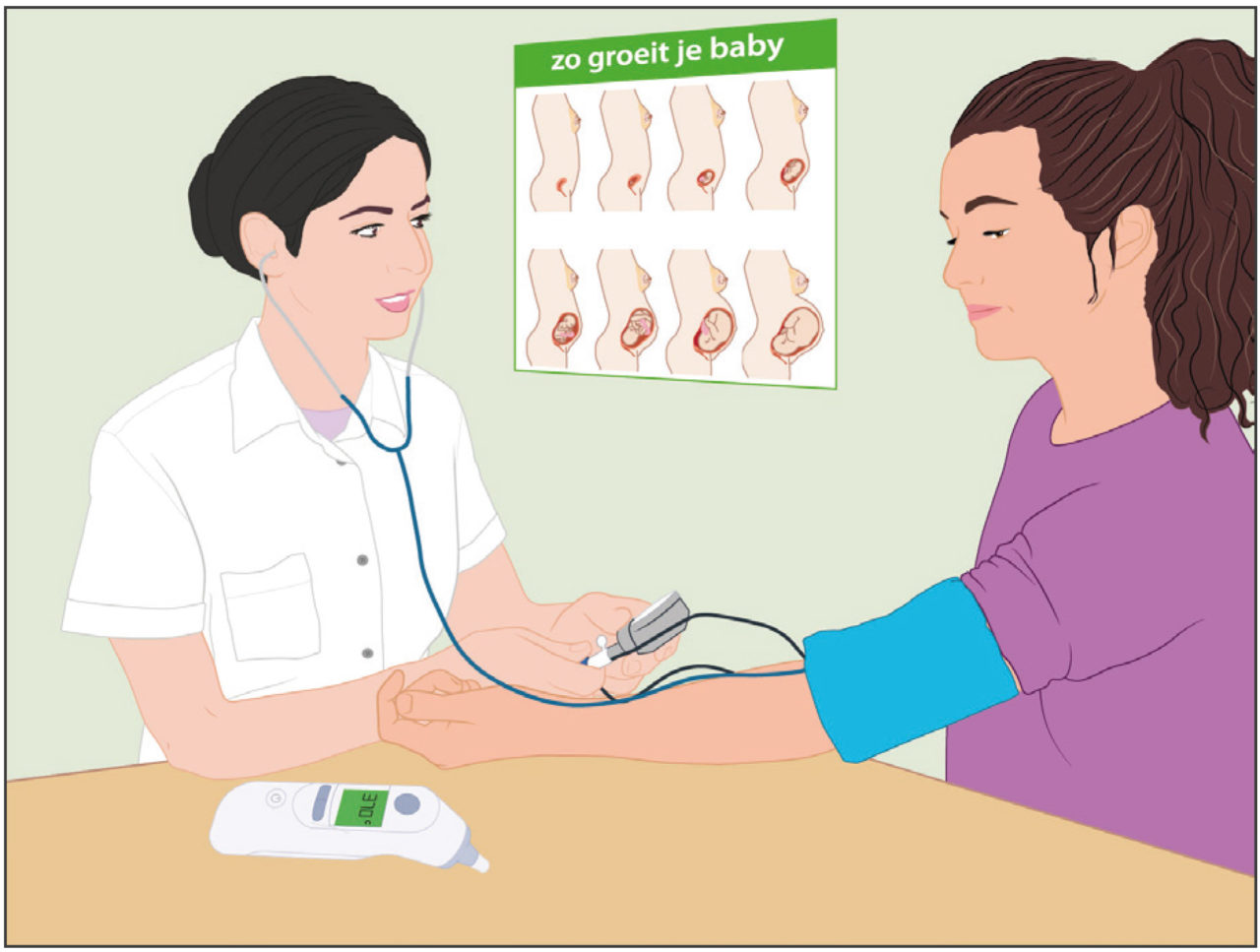
5. At the hospital
- The visiting rules after childbirth differ per hospital. Ask about the rules at your hospital.
- You may have to stay at the hospital for a while. Please then ask the hospital for more information.

6. Home
The midwife will discuss with you how often she will come to your home. If you have any questions, you can always (video) call the midwife.
The maternity care provider also comes to your house. She will take care of and monitor you and your baby and explain what you can do to avoid getting sick.
Both the maternity care provider and midwife are allowed to come to your home. It is a good idea to discuss this with the maternity care provider in advance.
The government also states how many other people are allowed to visit. Think carefully about having visitors. Visitors increase the chance that you or your baby will get corona.
If your visitors have symptoms like coughing, sneezing, snot nose, sore throat or fever, it is better if they don’t visit to prevent infection.
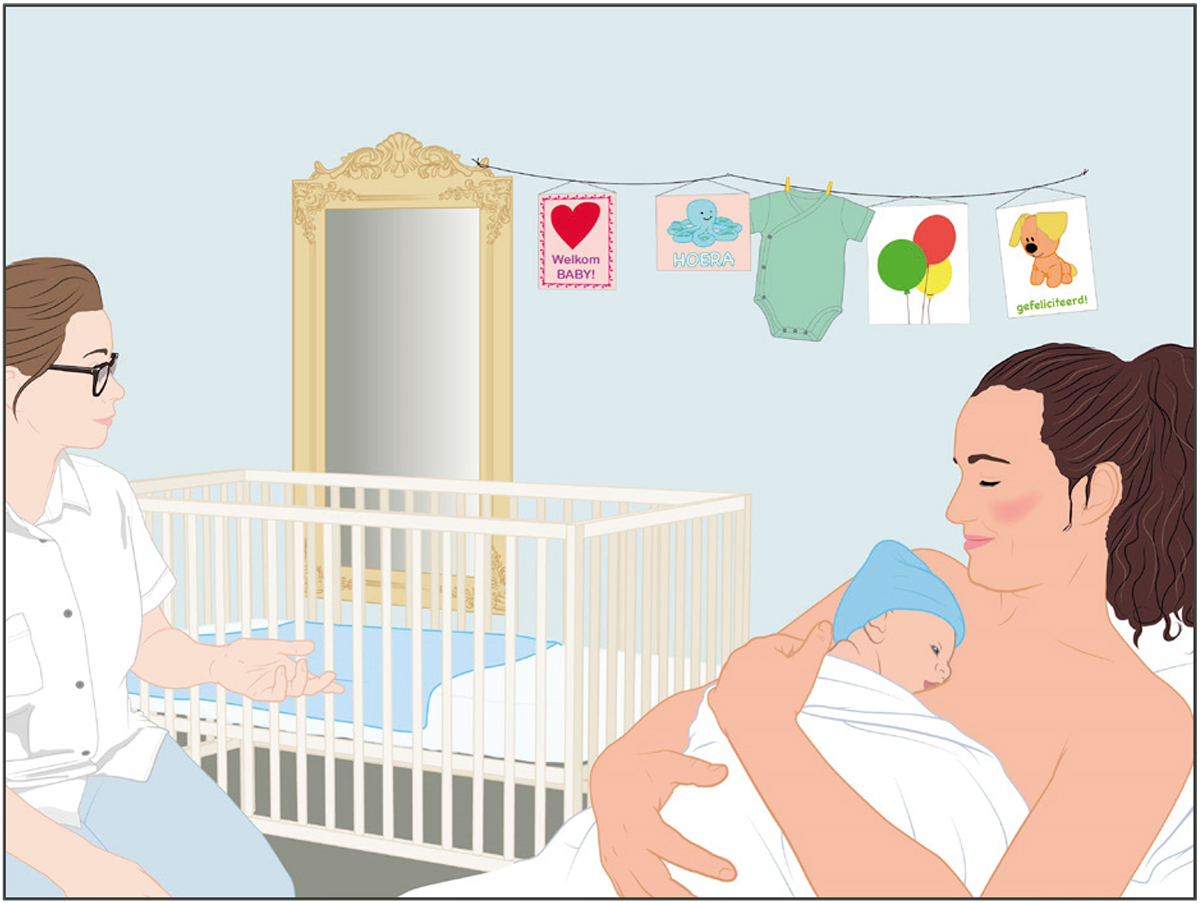
7. Special clothing
If you have symptoms that are consistent with corona or you have corona, the midwife or gynaecologist will wear special clothing to prevent them from getting coronavirus. This could be a mask, gloves, glasses or a jacket.
8. Courses and groups
Many courses and groups have been cancelled. Ask your midwife if there are any internet meetings.
9. Coronavirus vaccine
Pregnant women are more likely to get very sick from coronavirus.
The advice is: get vaccinated if you are pregnant or trying to become pregnant.
This advice comes from Dutch gynaecologists, midwives and paediatricians.
Safe
Doctors and scientists studied corona vaccine safety during pregnancy.
The studies show:
- The vaccine is safe for the pregnant woman
- The vaccine is safe if you are trying to conceive
- The vaccine is safe for the baby in your womb
- The vaccine makes the chance of you becoming seriously ill from coronavirus much smaller
- The vaccine is safe if you are breast-feeding
If you are unsure about vaccination, talk to your midwife or gynaecologist about it.
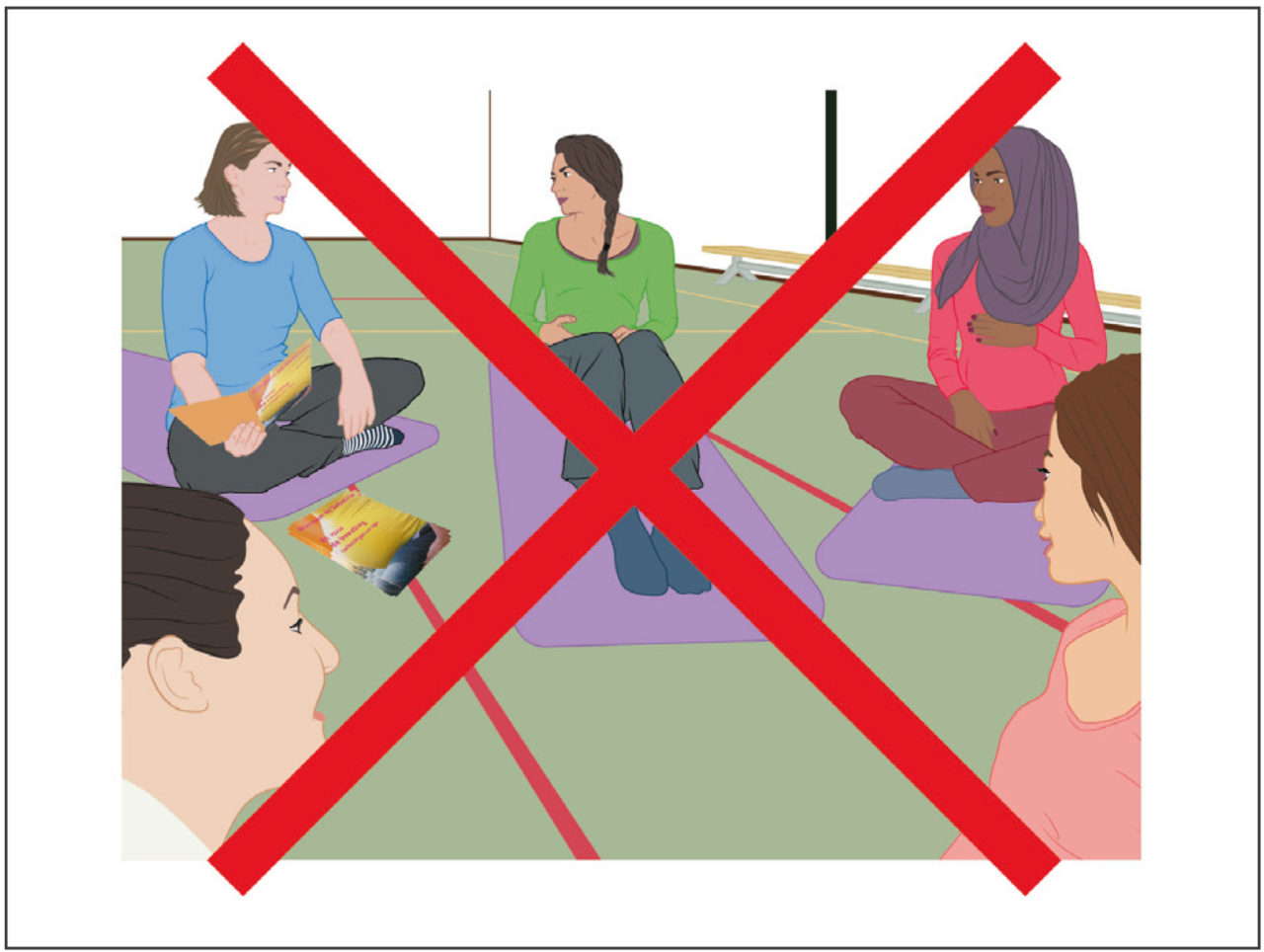
The midwife, maternity nurse and gynecologist will do everything to help you and your partner.
20 december 2021 – versie 9